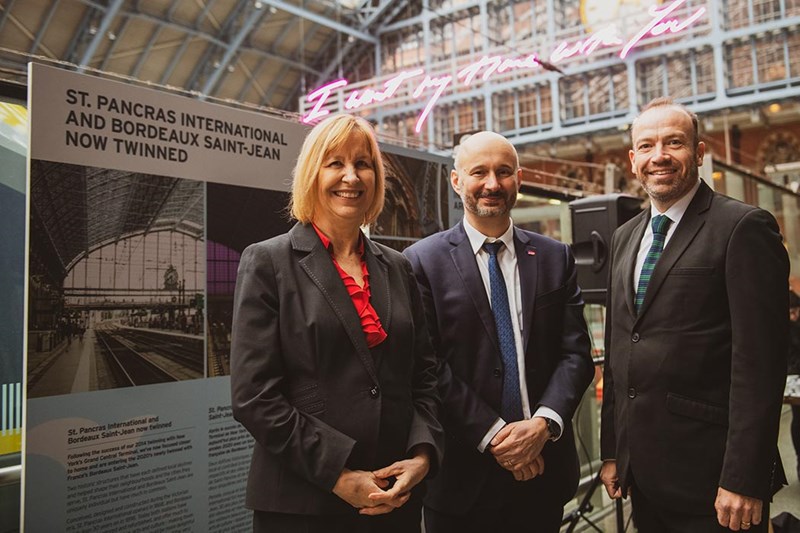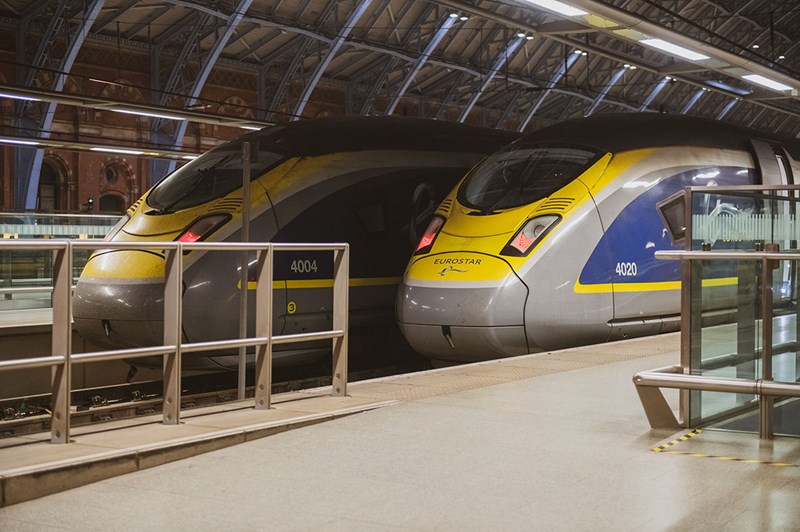Delivering for Britain and Beyond - The Economic Impact of HS1
March 2020

High-speed train travel between the UK and Europe removes the equivalent of 60,000 flights or 750,000 tonnes of CO2 per year, research published today shows, underlining the huge environmental and socio-economic benefits of international rail services.
HS1 Ltd, which operates the high-speed railway connecting St. Pancras International to the Channel Tunnel, published the research on the day it hosted a twinning ceremony between the flagship London terminal and the Gare de Bordeaux Saint-Jean.
HS1 Ltd is working with international partners - LISEA, Eurotunnel and SNCF Réseau - to connect direct services to Bordeaux, along with other new international destinations including Frankfurt, Dusseldorf, Cologne and Geneva.
The international line already brings in £2bn each year through increased tourist spending and supports an estimated 3,600 full-time jobs. Compared to those who fly, business passengers who are able to work on the way from city centre to city centre reap productivity gains equivalent to 2,500 full time employees.

Dyan Crowther (HS1 Ltd CEO), Diego Diaz (SNCF International President) and Chris Heaton-Harris MP (Minister of State for Rail) unveiling the twinning between St. Pancras International and Gare de Bordeaux Saint-Jean
“More and more people are switching to rail as the most environmentally-friendly way of travelling between the UK and a growing list of destinations in mainland Europe. They enjoy international travel without the hassle which is all-too-often associated with airports and make important environmental savings along the way."
“We are a fast, efficient, reliable and green gateway to Europe.”
Dyan Crowther, CEO of HS1 Ltd
“HS1 is a true success story and we are fully committed to expanding international high-speed rail links between the UK and the rest of Europe as part of our work to be a truly Global Britain.
“This new partnership demonstrates the huge potential of high-speed rail to help the UK reach its net zero carbon emissions target by 2050.”
Grant Shapps, UK Transport Secretary
The research, produced on behalf of HS1 Ltd by Steer (report below), predicts that once the newly opened Eurostar routes to Amsterdam and Rotterdam reach their full potential and further international destinations come on stream, passengers could make up to an additional 4.9 million international train trips per year, saving a further 470,000 tonnes of CO2e, equivalent to 26,000 short-haul flights. Average carbon emissions are 80% lower for train passengers than airline passengers over the same distance.

HS1 Ltd predicts that 200,000 people will use high-speed services between London and Bordeaux each year. The route makes use of LISEA’s recently-opened 302km high-speed line between Bordeaux and Tours. Passengers will be able to travel from London to south west France in less than five hours.
Next month, St. Pancras will welcome the first direct passenger services from Amsterdam.
March 2020